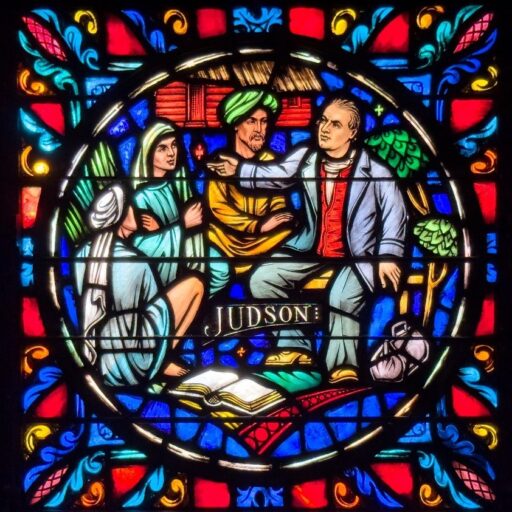1836-1902
Adoniram Judson Sage
Baptist Pastor/Professor OH/OH
Adoniram Judson Sage (1836-1902) was born in Massillon, Ohio, and graduated from the University of Rochester, NY, in 1860. His father, Orrin N. Sage (1805-1884), was a pastor in Ohio and one of the leading figures in stabilizing the Ohio Baptist Convention through his efforts as a fund-raising agent 1840-1844 and as corresponding secretary 1841-1844.[1]
Following the British model, Adoniram Judson Sage entered an essay competition during his senior year competing against the other 30 graduates at the University of Rochester. The theme for his 1860 class was “The Historical Value of Satirical Writing.” Sage’s essay entitled “Soul in Nature” won first place among his classmates and was a source of pride the rest of his life.[2] Three years later (1863) in the midst of the Civil War, he graduated from Rochester Theological Seminary and again received first place for his senior essay and second place in the junior Greek award.
Sage pastored the Baptist Church in Shelburne Falls, MA, 1863-67, followed by a short pastorate at the Strong Place Baptist Church in Brooklyn, NY, before moving to Fourth Baptist Church in Philadelphia, 1868-69. He returned to his alma mater as a Latin professor, 1870-71, and was awarded an honorary D. D. degree from Rochester Theological Seminary in 1872.
His longest pastorate was at First Baptist Church, Hartford, CT (1872-1884) which he left to become professor of homiletics at the Baptist Union theological Seminary in Chicago (Morgan Park), 1884-1888. Adoniram Judson Sage always maintained ties to Ohio where he was born, and especially to the Cincinnati area. He was a Director of Cincinnati’s Union Central Life Insurance Company, 1884-1888, and continued to do scholarly and popular writing from there. He wrote the analysis of the “Baptist Pulpit in the Nineteenth Century: Northern” which was published at the turn of the century, a year before he died, in A. H. Newman’s A Century of Baptist Achievement.[3]
One of his most popular poetic writings was about the violin and revealed some of the whimsy apparent in his early satirical writing in college and seminary. The poem is included here in appreciation of my daughter-in-law, Sheri Smith Cain, who is a strings teacher, youth orchestra conductor and excellent violiness.
The Violin
By Adoniram Judson Sage (1836–1902)
OH, fair to see!
Fashioned in witchery!
With purfled curves outlining
Thine airy form, soft shining,
In mould like ripening maiden,
Budding and beauty-laden;
Thou’rt naught but wood and string,
Crowned with a carvèd scroll,
Yet when we hear thee sing
We deem thou hast a soul.
In some old tree
Was born thy melody—
Its boughs with breezes playing,
Its trunk to tempests swaying,
Carol of wild-birds singing,
The woodman’s axe loud ringing;
Light arch of forest limb
Curving thine every line,
Tones of the forest hymn
Grown ripe in thee like wine.
Lightly the bow,
As if with life aglow,
Thy mystic grace revealing,
Shall set the witches dancing;
With classic notes entrancing,
Touch deepest chords of feeling.
Thy secret caves resound
As where enchanting elves,
Flinging the echoes ’round,
Blithely disport themselves.
How wild thy glee!
How sweet thy harmony!
Murmur of light heart dreaming,
Voice of the valkyr screaming,
Song of the cascade’s dashings,
Dance of auroral flashings!
O weird and wondrous thing!
Whate’er thy mood of art,
To wail or laugh or sing,
Thou’rt monarch of the heart.[4]
+++++++++++++++
[1] Richard H. Clossman, A History of the Baptist Churches in Ohio, 1789-1907, with Particular Reference to the Ohio Baptist Convention, (Springfield, Missouri: Particular Baptist Press, 2023), pp. 175-178.
[2] “University of Rochester,” Christian Watchman and Reflector (Boston, MA), Thursday, July 19, 1860, p. 2.
[3] “The Baptist Pulpit of the Nineteenth Century: Northern,” Adoniram Judson Sage in, A Century of Baptist Achievement, A. H. Newman, editor (Philadelphia: American Baptist Publication Society, 1901), pp. 373-388.
[4] https://www.bartleby.com/lit-hub/a-library-of-american-literature/the-violin/
